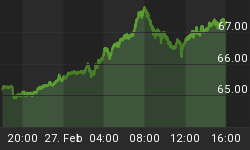It has been well documented that oil majors from around the world are looking at oil exploration in the Arctic, where they believe that some of the largest untapped fields in the world still lie. Environmentalists have been fighting efforts to start exploring for oil, fearing that any serious oil spill could mean the destruction of one of the last pristine wildernesses on the planet.
In the Kara Sea, where Exxon Mobil and Rosneft are planning to drill a region which is estimated to hold enough oil to supply the world for five years, environmentalists have a new reason to fear for the environment; nuclear radiation.
The Kara Sea is so remote that the Soviet Union used it as a dumping ground for radioactive material for more than 25 years. The two oil companies have avoided calls for the nuclear waste, estimated to consist of over 17,000 barrels of radioactive waste, worn-out reactors, and even an old nuclear submarine, to be cleared up before any exploration takes place.
Scientists from the Norwegian Radiation Protection Authority (NRPA) will soon present the results from their first survey in the area for 18 years, to determine whether or not the radiation is stable or increasing.
Rosneft released a statement to try and reassure the public that "all ecological and nature protection norms are being followed at the same time," using "the the best world practices available."
The most dangerous item down on the sea floor in that area is the K-27 nuclear submarine, which was dumped their by the Soviet navy in 1981. The NRPA said that any significant corrosion could damage the ships reactor and cause an environmental disaster.
Per Strand, a director at the NRPA, warned that "there might be a hypothetical possibility that the spent nuclear fuel in the reactor in extreme situations can cause an uncontrolled chain reaction, which can lead to heat and radioactivity releases."
Igor Kudrik, an ecologist from Norwegian campaign group Bellona, suggests that "oil companies should make sure that the area is swiped clean of nuclear waste before they start any oil exploration activity."
By. James Burgess of Oilprice.com















